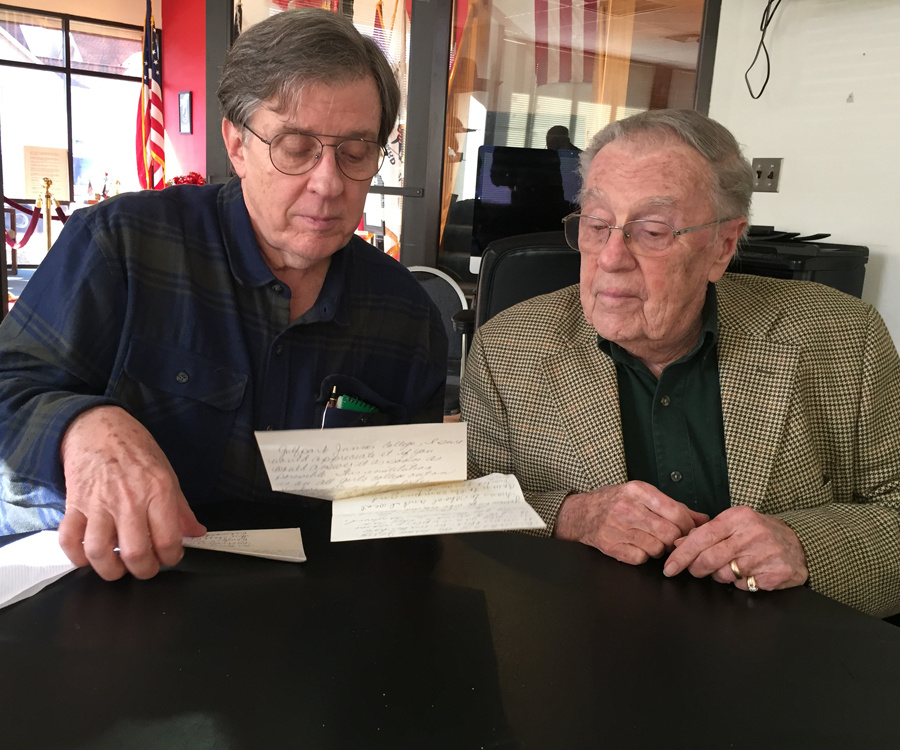A retired teacher recently received a letter delivered to a Virginia high school for him more than 50 years ago — then reunited with the student who wrote it.
In 1967, Henry Wheeler was an engineering drawing instructor at Douglas Freeman High School in Richmond when Jerry Williams, a former student serving in the Air Force, mailed him a letter.
Williams was requesting a character reference after learning he needed the recommendation to date students attending a private women’s college near his Biloxi, MS, base.
The letter was delivered on time but it apparently became lost at the school, where it was recently discovered. Another teacher then brought the unopened envelope bearing an 8-cent airmail stamp to Wheeler.
“I don’t know where it was or where it was found,” said Wheeler, now 88. “I’m guessing it was stuck in a file cabinet.”
He shared the letter with a social group of former Freeman High teachers and students. One of the members contacted Bill Lohmann, a columnist with the Richmond Times-Dispatch, who found Williams’ contact information online and gave it to Wheeler.
“Henry felt terrible he’d let this guy down,” said Lohmann.
Williams, now 71, said it “boggled my imagination” that Wheeler found him after so many years and relocations.
“When Mr. Wheeler left the message, I caught his voice right away. I remembered it — and I graduated in 1966,” said Williams.
Lohmann covered the pair’s January reunion for a story that was published in both the Richmond Times-Dispatch and the Biloxi Sun Herald.
“We made each other remember things the other had forgotten — where some people ended up, how times have changed since then,” said Williams.
When Wheeler didn’t respond to the letter in 1967, Williams forgot about it. While he never got that date he wanted, he eventually married and had a telecommunications career with the Virginia State Police.
In addition to underscoring the enduring importance of mail — and journalism — the coverage of the reunion has prompted other former students to contact Wheeler.
“I’ve received about seven letters since the story [came out],” said Wheeler, who keeps in touch with many of his former pupils. “I worked with my students like they were adults, I never used the word ‘kids.’”
Said Williams: “We all looked up to Mr. Wheeler. He was interested in the students and the school. He has set a good example for all of us.”
